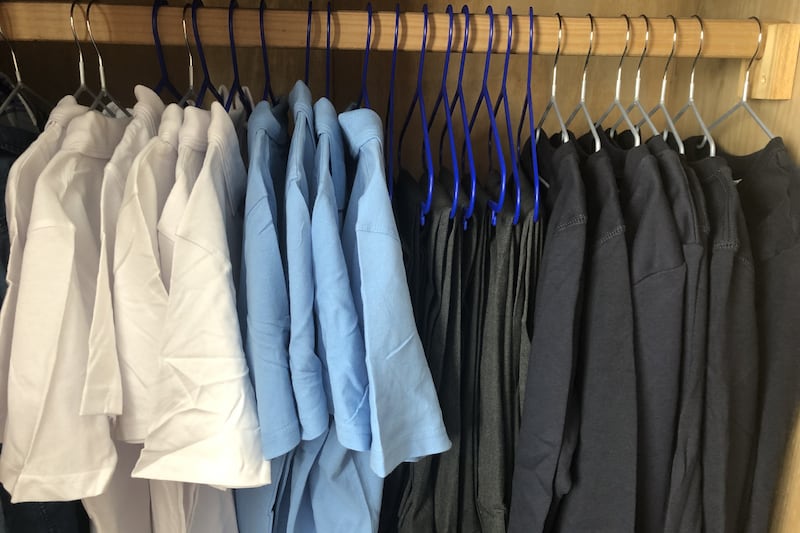Parents are still having to spend “exorbitant amounts” on school uniforms despite changes introduced last year aimed at keeping costs down, a charity has said.
Parents and carers of secondary school children are paying on average £422 per year on uniform, and around £287 for primary school children, according to research by The Children’s Society.
The charity, which polled 2,000 parents from across the UK in May, said the high costs are partly due to the requirement from some schools for branded items which have to be bought from specialist shops rather than supermarkets or high-street chains.
Its survey found that on average pupils were expected to have three branded items, with 29% of secondary school pupils required to own up to five branded items including PE kits, and 13% expected to have as many as seven.
The Education (Guidance about Costs of School Uniforms) Act received the Government’s backing and came into force in autumn last year. It applies to England only.
Under guidance published following the introduction of the Act, schools must make sure second-hand uniforms are available.
They are also advised to keep branded uniform items to a minimum and are encouraged to allow more high-street options.
In Northern Ireland, schools are expected to ensure their uniform is available in multiple places rather than from one supplier, and uniform grants are available to some pupils with the criteria similar to qualifying for free school meals.
In Scotland, school clothing grants are available to some pupils and can be applied for through the local council.
In Wales, families can apply for a school essentials grant through their local authority.
Mark Russell, chief executive of The Children’s Society, said: “It’s alarming that parents are still forced to spend exorbitant amounts on school uniforms. With inflation and the cost of living eating into family budgets, we are disappointed that the affordability of school uniforms remains a significant financial burden for many families.
“As an organisation, we had campaigned for many years to make school uniform affordable and while some schools have made commendable changes to reduce costs, this positive trend is still not widespread enough.
“We urge parents who struggle with the affordability of school uniforms to contact the school and the school governors.”
Labour MP Mike Amesbury, who sponsored the uniforms Bill that became law, said more must be done to ensure the guidance in England is being followed.
He said: “I was delighted when the law was passed in 2021 to make school uniform more affordable so families had more choice and fewer specialist items to buy.
“However, it appears that the rules on branded items aren’t clear enough so can be interpreted differently by schools, or the message isn’t getting through, so I would urge the Department for Education to do more so schools make these important changes.”
Action for Children said there is help available for families in need.
Megan Wright, from the charity, said: “Many items don’t need to be branded so have a look at your school policy and see if they run a uniform ‘swap shop’. Facebook groups are a good place to find parents selling second-hand uniforms or supplies.
“Charities like Action for Children also have Education Funds to help support many of the families we work with to ensure their children get the most out of their education. Well-fitted and comfortable school uniforms shouldn’t be a luxury only few can afford.”
A Department for Education spokesperson said it expects schools in England to be compliant with the uniforms guidance by September.
They added: “We will continue to work with responsible bodies and schools to ensure the guidance is followed and uniform policies are reasonable.”








